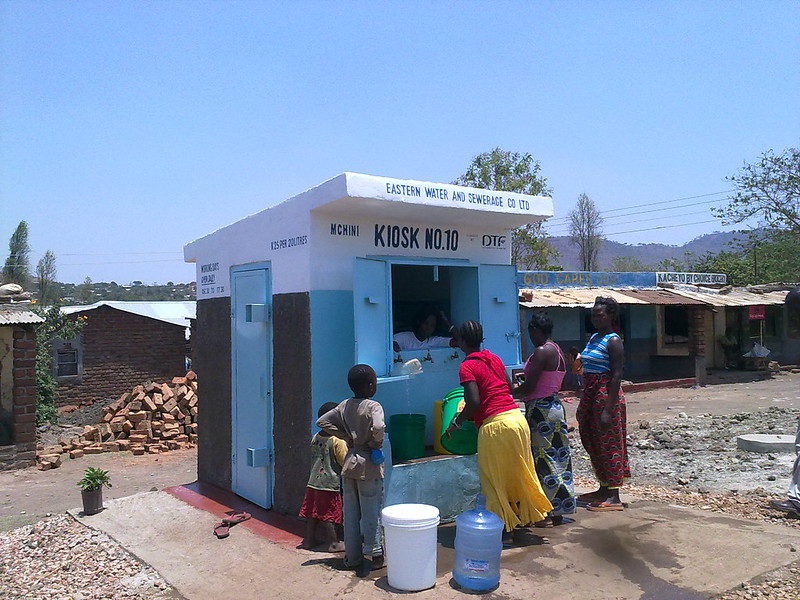Zambia’s Cholera Outbreak: The Battle for Public Health
 Zambia’s recent cholera outbreak has been the catalyst for significant hardships for its population, with devastating consequences for public health. Since October 2023, there have been more than 10,887 cholera cases, with more than 432 reported deaths.
Zambia’s recent cholera outbreak has been the catalyst for significant hardships for its population, with devastating consequences for public health. Since October 2023, there have been more than 10,887 cholera cases, with more than 432 reported deaths.
Cholera is a waterborne illness caused by the bacterium Vibrio cholerae, which produces a toxin in the small intestine, leading to loss of fluids and electrolytes. The bacterium manifests itself in contaminated water, which in turn affects underdeveloped countries lacking resources for proper water supplies and sewage disposal.
Densely populated areas such as Lusaka, with limited or no access to clean water and sanitation, are facing the worst consequences, with a devastating 4,443 cumulative cholera cases since October 2023.
Government Initiatives
In response to Zambia’s cholera outbreak, the Zambian government has taken decisive action through robust initiatives, including the Multi-sectoral Cholera Elimination Plan (MCEP) 2019-2025, with the aim to eliminate cholera by 2025. The MCEP has set six targets, including, but not limited to, improved surveillance of cases, reduction of the overall mortality rate of cholera by 90%, accelerated access to safe drinking water and conduction of oral cholera vaccination campaigns.
According to the World Health Organization and the United Nations Children’s Fund (UNICEF) Joint Monitoring Programme for Water Supply and Sanitation, 39% of Zambia’s population does not have access to basic drinking water services. In comparison, 69% do not have access to basic sanitation services. The MCEP has estimated that in order to reach its targets, Zambia will need to provide basic water supply to 660,000, basic sanitation to 1.16 million and basic hygiene services to 1.46 million people yearly. In order to do so, the MCEP has set a budget for $99,345,493 over seven years, with $67,877,076 dedicated directly to water supply, sanitation and hygiene.
NGOs and International Aid Efforts
In addition to government initiatives, nongovernmental organizations (NGOs) and international aid agencies have played a crucial role in addressing Zambia’s cholera outbreak. For example, Oxfam and the Keepers Zambia Foundation (KZF) are working together to train volunteers to be health promoters. Volunteers help people who fall ill with cholera get oral rehydration therapy, refer patients to the hospital and encourage people to practice good hygiene. Furthermore, Oxfam is working with KZF to provide oral rehydration salts and chlorine to treat unsafe water, as well as providing equipment such as soap and clean buckets to prevent the further spread of cholera.
Another example of international aid efforts comes from WaterAid. The organization calls on global governments and stakeholders to invest funds in sustainable water resources, sanitation and hygiene services to support Zambia both immediately and in the future. Moreover, WaterAid Zambia is working with local Zambian communities to fight against waterborne diseases such as cholera. This includes education on basic hygiene practices and promotion of community-led sanitation initiatives. These are sustainable, long-term changes that address the root causes of the cholera outbreak in order to prevent any possible future outbreaks.
Innovations in Cholera Prevention
There are currently three WHO pre-qualified oral cholera vaccines: Dukoral, Shanchol and Euvichol. All of these vaccines require two doses for full protection. Dukoral requires a buffer solution of 150ml of clean water and protects for two years. Shanchol and Euvichol, however, do not require a buffer solution and protect from cholera for three years.
The latter two are currently available for mass vaccination campaigns in areas with an outbreak through the Global Oral Cholera Vaccine (OCV) stockpile, supported by Gavi, the Vaccine Alliance. Currently, a mix of live, killed and conjugated vaccines are in development with the hopes of long-term protection and easy administration.
Conclusion
Zambia’s cholera outbreak has underscored the critical need for comprehensive public health interventions to address waterborne diseases effectively. While significant progress has been and continues to be made through government initiatives, NGO efforts and international aid efforts, challenges such as limited supplies and heightened demand persist. However, with sustained commitment, investment and community engagement, Zambia can work towards a future where the impact of cholera outbreaks is minimized and public health resilience is strengthened.
– Emily Weir
Photo: Flickr
